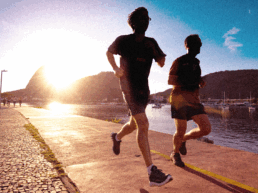Cities regularly bid to host sports events to support local and national development strategies.
Sport events may boost media coverage, drive tourism, engage the local community and fill hotel rooms that improve the economy, or all the above.
I suspect your event strategy sets out to achieve all the above and much more.
If boosting the economy is a primary aim, then you’ll need as many tickets sold to an international audience as possible. After all, the further someone travels, the more they spend in the host city as there is a need for accommodation and daily essentials. The economic impact report of the UK stages of the 2014 Tour de France is a great example of this.
But is the Local Organising Committee (LOC) created to deliver the event concerned by economic impact, or do they just need to sell all tickets to balance their budget?
Fundamentally, it’s about attracting international visitors and participants by creating and executing an effective international communications strategy. If the LOC is not tasked with this, you may need to take control and implement your own campaign.
Our advice is to take a data-driven approach to improve the impact of the campaign. Here are five ways data analysis and audience insights can help:
1. Audience analysis– create targeted audience groups by cross-referencing all data sources (social media, Google analytics, CRM data, previous event registration data) to focus on those most likely people to travel to your event.
Tip: Make sure the digital media budget is only spent on engaging people whose behaviour can be influenced most easily.
2. Early planning– your international communications strategy should be implemented early, so get the audience analysis and insights work completed in good time.
Tip: the earlier you can engage and influence one person, the longer you have to make them an event advocate and encourage them to bring their friends and families.
3. Territory specific content– help your target audience ‘feel’ what it might be like if they were at your event and the results will improve. Content and messaging that engages the local market may not be right for your international audience.
Tip: use audience insights to develop creative content that will be language-specific and culturally relevant to engage your international audience.
4. Creating advocates – use audience insights to identify interests, the type of content they want, and the type of content they are most likely to share. This way you’re more likely to create some event advocates who will promote your event to their communities.
Tip: identify potential advocates early and engage them directly, incentivising them to support your efforts.
5. Targeted media spend– use your budget effectively to engage target audiences multiple times, taking them on the buyer journey, building their interest and anticipation before you try to secure their currency.
Tip: Generating results is the consequence of consistent and relevant engagement over time.
We really believe sports events can be a force for positive change in cities worldwide, and that a data-driven approach can help event hosts maximise the hosting opportunity. If you’d like to discuss how we can help you achieve your international aims and ambitions for a particular event then get in touch– we’d love to help you make a difference.





